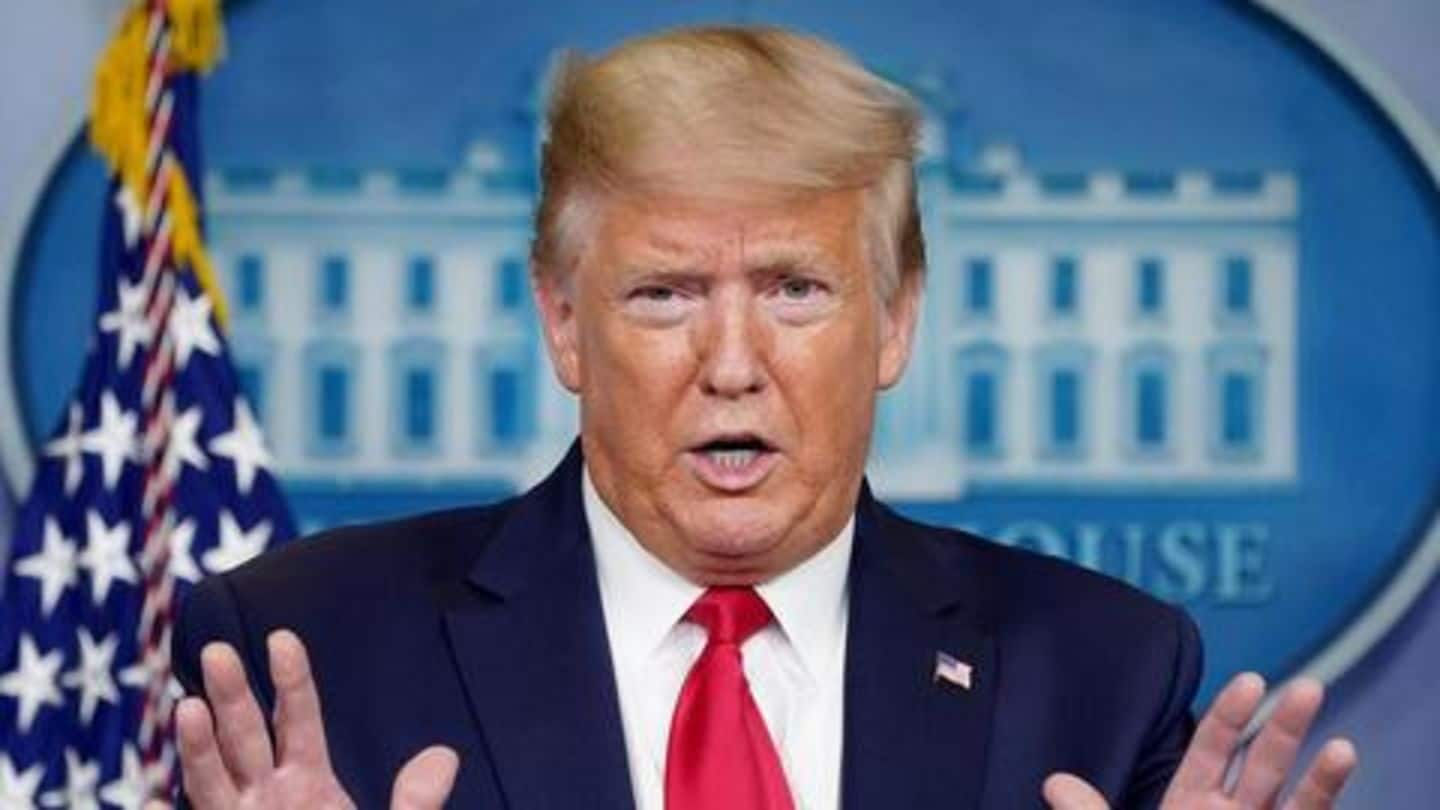
Trump to sign executive order targeting social media firms
What's the story
US President Donald Trump will sign an executive order pertaining to social media, the White House has confirmed.
The action, which is expected to target social media giants, comes just a day after Twitter added a fact-check warning on two of President's misleading tweets for the first time.
Here is all you need to know about it.
Action
Twitter flagged Trump's misleading tweets around mail-in voting
On Tuesday, President Trump shared misleading information about mail-in voting, claiming that it will be nothing short of "substantially fraudulent" and lead to "a rigged Election."
The comments, stemming from California's move to expand mail-in voting, immediately prompted Twitter to add a fact-check warning, redirecting readers to a page that described the President's claims as "unsubstantiated" and detailed the facts about mail-in ballots.
Response
Then, the President lost his cool
Following Twitter's action, Trump attacked the site for "stifling free speech" and interfering in the 2020 Presidential Election, scheduled for November.
He even went on to lament to his 80 million followers that "Republicans feel that Social Media Platforms totally silence conservatives voices. We will strongly regulate, or close them down, before we can ever allow this to happen. (sic)"
Twitter Post
Here's what Trump said against social media firms
Big Tech is doing everything in their very considerable power to CENSOR in advance of the 2020 Election. If that happens, we no longer have our freedom. I will never let it happen! They tried hard in 2016, and lost. Now they are going absolutely CRAZY. Stay Tuned!!!
— Donald J. Trump (@realDonaldTrump) May 28, 2020
Executive
Executive order is on the way
Hours after that rhetoric on Twitter, White House confirmed that the President will be signing an executive order against social media firms.
The officials did not share any details pertaining to the directive and it is not exactly clear what kind of regulatory restrictions Trump could impose on social media companies, without new laws being passed by Congress.
Possibility
Narrowing the scope of Section 230 is a possibility
While there are no confirmed details, sources familiar with the matter told Washington Post that the order could prompt federal regulators to narrow the scope of Section 230.
It is a provision of the Communications Decency Act that protects internet companies from being held liable for content posted by users on their platforms and gives them the power to moderate the same.
Impact
It could place editorial conduct outside Section 230 protection
Kate Klonick, a law professor at St. John's University, tweeted that the order is likely to place editorial conduct, which Twitter did, outside the protections of Section 230.
Beyond that, it could result in complaints related to political bias on social media being channeled to the FTC, which could investigate their content moderation practices and order federal agencies to probe their ad spendings.
Twitter Post
Here's what Klonick said
Section 230 doesn't protect editorial conduct
— Kate Klonick (@Klonick) May 28, 2020
Twitters labels on tweets regarding falsity = editorial conduct
Therefore, this EO places such platforms outside scope of Sec. 230 protection
2/